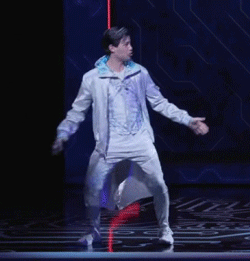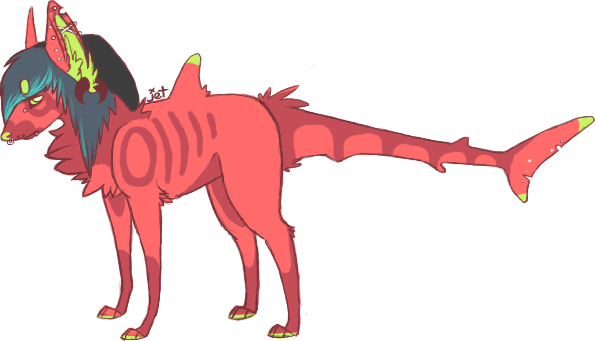Selcouth wrote:

Corax [♂] .&&. The Child [??]
x-x-x-x
How many miles to Babylon?
Three score and ten.
Can I get there by candlelight?
Aye, and back again.
If your feet are nimble and light,
You'll get there by candlelight.
x-x-x-x


Eric {The Poet} [♂] .&&. The Rhyme {The Child} [☿]
x-x-x-x
Eric stared blankly into the gardens. Wilting flowers and gnarled tree roots dotted the place in abundance, but he wasn't really looking at them.
In the largest tree hovered a strange ball of no-colour light, which secreted clouds like fog from dry ice. It waited. No one saw it.
A quill pen rested in his left hand, a solidifying vial of ink sat on the windowsill, a blank sheet of paper was on his lap- he wasn't paying any mind to any of it. Instead he listened in helpless fright to his wife upstairs, giving birth with an unlicensed midwife to help her along. They couldn't afford a doctor- Hell, no one could. So helpless and banished from the room just hours before, {Elizabeth, his beloved, had thrown a flower vase at his head when he said, quite idiotically in hindsight, “it can't be that bad, darling!” during an extremely painful contraction. He really had no choice but to take the hint.} With every one of her groans, his eyes dulled a little bit further.
Giving birth was dangerous these days, particularly for Elizabeth, who had attempted the feat before with still-born results. It had taken ages until she had wanted to try again, and so this was attempt number two; and Eric didn't think he, nor his wife, could handle another tragedy on the list. It had to go well this time.
Suddenly a bit of gleaming blue flashed in front of him, making him jump. It was a magpie; a dastardly little bird with beautiful feathers, and it was pecking at the ground aimlessly. He didn't bother shooing it off; he figured that if it found any gold or jewelry, it was welcome to keep it, because it certainly didn't come from him or Elizabeth.
It hopped around, searching the surrounding bushes and scanning the skies, before it flew gloomily into the leafy tree top. Then inspiration struck Eric like a lead beam.
He wrote ‘one for sorrow’, since the poor thief seemed to be missing his wife. Eric had a limited knowledge of birds, but he knew that magpies tended to mate for life; he also knew that, in general, you were supposed to refer to lone magpies as male when greeting them. He briefly pondered the implications of this.
Elizabeth cursed something vicious from upstairs, and he winced.
Eventually another magpie swooped into the garden, following much of the same steps her/his mate had done. Then the first dived out of the tree with- ‘mirth’, he wrote. Two for mirth.
Chirruping their odd little chirps, the two retreated to what Eric assumed to be their nest. And not too far from that, the ghostly ball gained a range of emotion, and was sad, and then happy. And now it waited with joy.
Two other magpies fluttered by hours later, when Eric was starting to tire of pacing around the room to stave off his nerves. Instantly he pounced upon the unfinished poem and started to study the birds.
They were essentially identical, and evidently courting; the male {he assumed} had his tail fanned like those exotic peacocks Eric had once seen at a traveling zoo. The colours were even similar. He also puffed up his head feathers and made the white spots of his wings bigger- the female, though, wasn't having any of it. She danced around him nimbly, fluttering away before coming back again, still curious despite herself. They chased each other into the branches before long, and Eric was left with two choices for his poem.
He could either go with ‘three for a girl, four for a boy’; but then he would have to change mirth. Perhaps to joy?
{The no-light ball hesitated. This stage was important.}
A thump sounded from upstairs, followed by colourful language.
His mind started to wander into worse places, now that his birdie distractions were gone. ‘Three for a funeral, and four for a birth’ would work... And it was a bit like flipping a coin, he thought, holding the fate of an unborn child {two, actually} in the palm of his hands. Somehow, he felt as if this line would decide the future; a heavy weight settled on his shoulders.
He whipped out another sheet of paper, and copied the ‘mirth’ rhyme onto it. Then he crossed out ‘mirth’ on the original, wrote joy, and felt pleased with himself. There was excited chatter from upstairs.
And in the tree, the no-light died and lived, and formed its body to be male and female, aged around four. It now sat, rather than hovered, on the branch, and the magpies cocked their heads at it. It mimicked the motion and smiled. It recognized itself in these birds, and in the papers the poet had written on.
The child grew black hair that shimmered blue in the light, and was tipped with white; it grew tiny feathers from its back, not quite wings, but close. The muse who'd birthed it wanted it to be a bird, but the poet wanted a human child. Such is the give and take of writing.
Inside the little house, oblivious to this otherworldly event outside, Eric was trying to force his way into his wife's room. The little midwife was strong for her size.
Dejected, he stomped down the stairs and back to his modest desk. The two rhymes stared up at him, and the spirit of them watched from above. It now had a body, but it wasn't entirely formed yet; rhymes never really are.
Another pair of magpies hopped into the garden, and Eric took up his quill pen.
One was short, at least in comparison to his/her companion, and carried a silver chain in its beak. It was fidgety, like it knew that it just committed theft and was expecting guards to be on its tail within moments. The other was tall, or taller, and held a golden ring. It seemed pleased with itself.
Eric jotted down gold and silver for the ‘joy’ poem, and the child in the tree gained golden eyes and a silver tongue. It learned how to speak, and lie, and steal and see the worthy from this.
As for the ‘mirth’ poem, he had to think a bit. The littler magpie seemed to be the better conscience of the two, eager to rid itself of the stolen jewelry; he decided to call this one heaven, and the other hell. And the rhyme's spirit became a neutral force.
Then something unusual happened.
Nearing the end of its required verses, the child now had enough substance to help the poem along. All spirits are want to do this, to control their own destinies; and feeling impish, the rhyme forced its wings out to full length, aging its body to a young seven, {which was about all it could get to at the moment} and burst from the tree tops in flight.
Eric dropped his pen- that was the biggest magpie he'd ever seen, he thought, and he quickly scribbled down the only two lines he'd ever had full confidence in.
‘Seven a secret never to be told’, for joy.
‘Seven for the Devil his own self’, for mirth.
And the rhyme was given life, the exact same moment two children were brought into the world.
“Eric!” Shouted Elizabeth's midwife, cradling two tiny bundles in her arms as she huffed and puffed down the stairs. “Where the devil were you? You missed the birth! Twins! A boy and a girl, twins, Eric!”
“I- what?” He squeaked, and had a bundle of white cloth thrust into his arms. A sleepy, scrunched up face stared back at him, looking like it was disappointed in him. He couldn't tell if this was his daughter or son, but didn't care as he danced around the room, whooping in joy and mirth and all good things.
“Honestly,” sighed the midwife, cooing to the child in her arms, “men.”
They were Fate's gift to the poet- a thank you for finally using the talents she'd given him. Even though the poem would be a failure at first- when he'd eventually bring it to a publishing company- he'd spread it around in other ways. And it wouldn't be long before hundreds and thousands of English voices were singing out the same rhyme, the same tune, perhaps with a little embellishment on the words, to hundreds and thousands of small children; who would one day pass it down to their offspring, and so forth.
But for now, the rhyme will grow and live and learn. And, maybe, it will love as well.
Though first it might need a name...
x-x-x-x














.png)
.png)
.png)
.jpg)

.jpg)
.png)
.png)
.png)
.png)
.png)
.png)
.png)
.png)
.png)
.png)
.png)

.png)
.png)
.png)
.png)
.png)








.png)



















